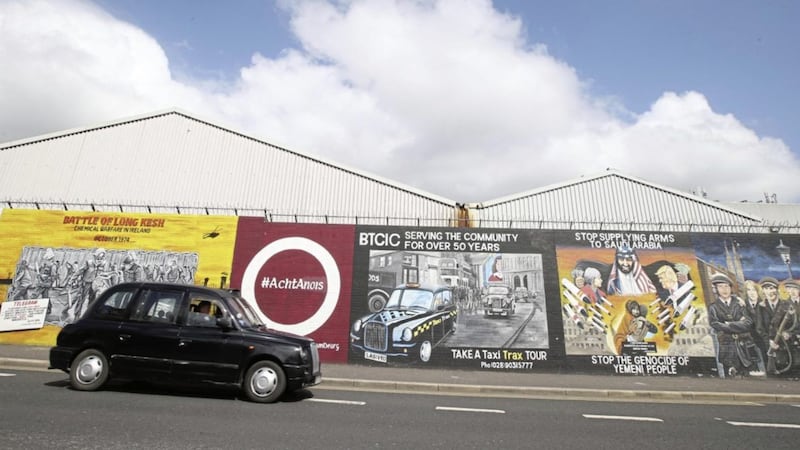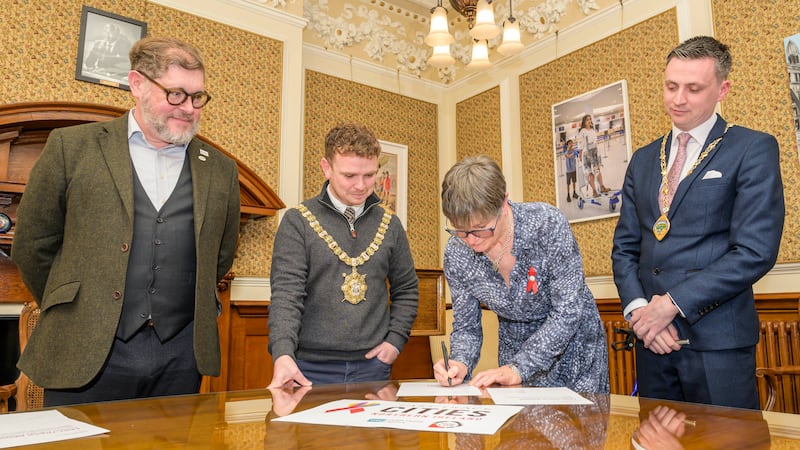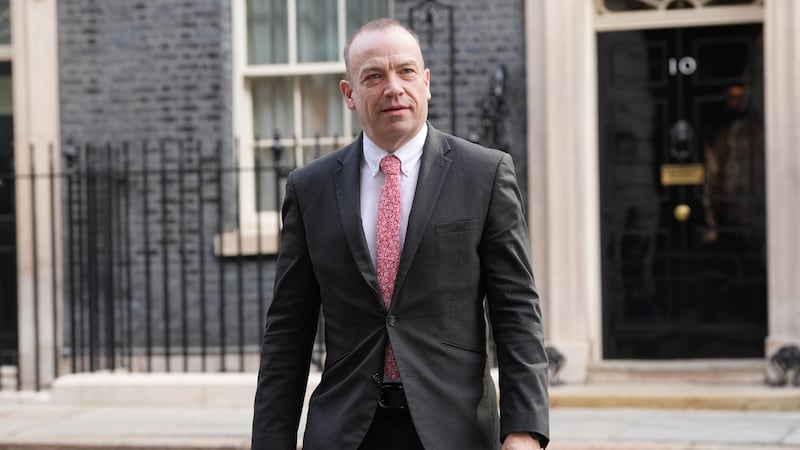A FATEFUL combination of high levels of both poverty and people working in the health service frontline is being seen as a key factor leading to spiralling numbers of Covid-19 cases in west Belfast.
The BT11 postcode is now second only to Derry in the number of coronavirus infections per 100,000, with 787.5 recorded on the Department of Health dashboard.
The area, which stretches from Upper Springfield Road to the the M1 motorway and runs from Suffolk Road to Milltown Cemetery and includes Andersonstown, is the epicentre of the Belfast outbreak, but the adjoining area of BT12 and BT17 (extending out into the Twinbrook estate, Hannahstown and Dunmurry) are facing the next highest in the city at 704.4 and 673.8 respectively.
The trio, separated by Clogher and Augher in Co Tyrone, fall into the top six Covid-19 hotspots in the north.
Black Mountain councillor Matt Collins is angered at suggestions "the people of west Belfast has brought this on themselves".
"It is farcical to try and blame ordinary people," he said.
"(First Minister) Arlene Foster is saying it is being spread by house parties, but that is shifting the blame to individuals and families, when it is Stormont's policies before and during the pandemic which have caused this.
"The vast majority of people understand the seriousness of the situation they are in and are socially distancing and self-isolating where required to do so.
"People are very worried at the moment, very concerned about a very difficult winter for our health service and worrying about the health implications and jobs - there has been a significant increase in unemployment.
"For me it is becoming increasingly clear that Covid is hitting the poorest and most marginalised hardest, and west Belfast tops the charts in poverty levels."
Northern Ireland Statistics and Research Agency (Nisra) data on 875 coronavirus deaths in the six months before the latest surge revealed death rates have been highest in the most deprived areas - with 66 deaths per 100,000 population compared with 55.2 for the region as a whole.
The highest Covid-19 related deaths were also in urban areas (66.9 deaths per 100,000 population).
However, not all deprived urban areas have been equally affected, with the Ardoyne area of north Belfast seeing 257 cases per 100,000 people - half the number of the more affluent BT9 area of south Belfast.
Indeed the Nisra data found a relatively small difference between Covid-19 related deaths the 20 per cent most deprived areas and 20 per cent least deprived which had deaths at 60.4 per 100,000.
As far as the People Before Profit politician is concerned the Executive's "failure" to ensure Covid-19 had been sufficiently driven down after the first lockdown has had a direct impact on current high infection levels in his district.
"Stormont rushed people back to work prematurely - despite the furlough scheme still being in place. They squandered the opportunity to reach `Zero Covid', creating an endless cycle of circuit breakers.
"When you force back to work low paid workers and self employed to places where they can't socially distance and they can't afford to lose wages and jobs by self isolating then you will see high infection rates."
Added to this, Mr Collins said, are the number of low paid essential workers in hospitals, care homes and food shops who carried on "putting their lives on the line" during lockdown.
"These are people caring for us, helping us, keeping our society going. The biggest employer in west Belfast is The Royal (hospital). There's a huge amount of health workers in this area."
He said without longer and better paid sick pay and government support for those on low wages infection rates will not come under control in deprived areas.








